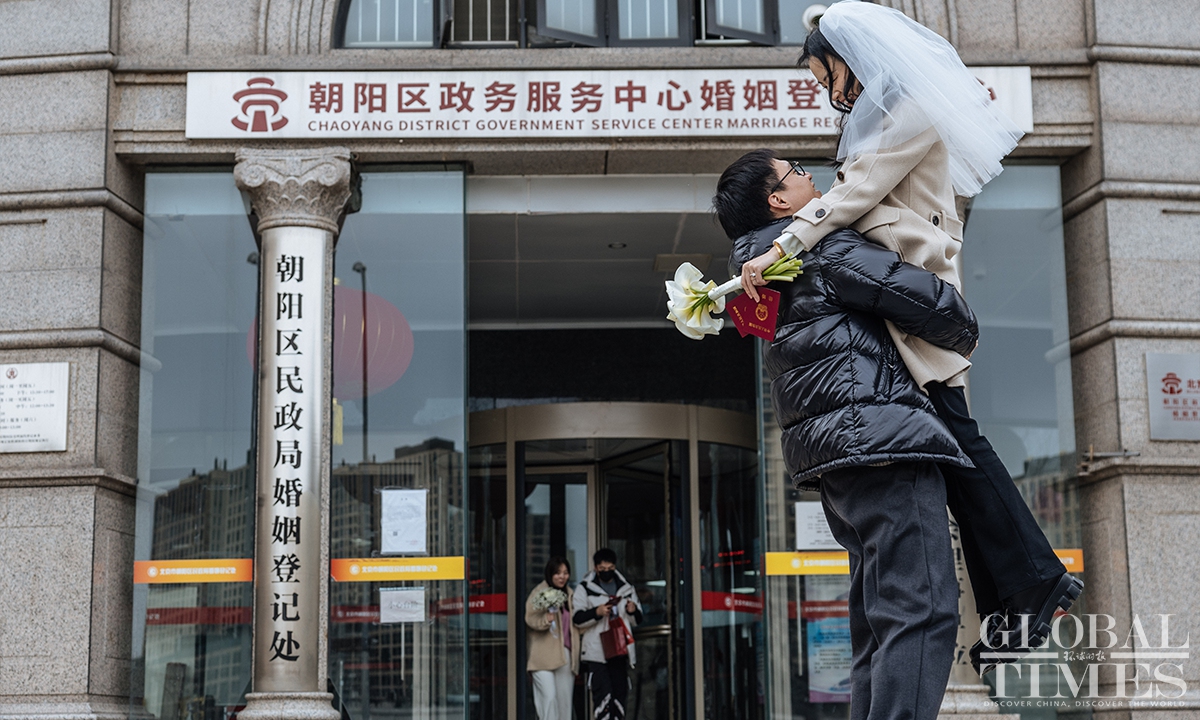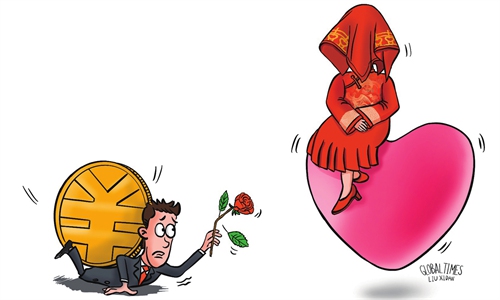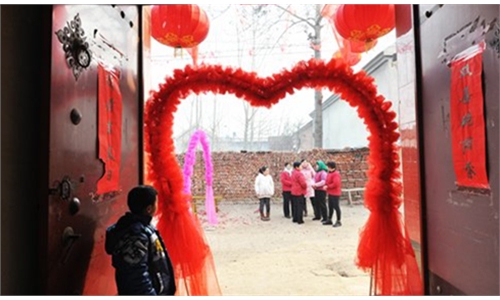
Photo: Li Hao/GT
China unveiled its key policy document or No. 1 central document for 2023 on Monday, vowing to launch a special campaign against problems including exorbitant "bride prices" and extravagant wedding ceremonies as part of nationwide efforts to strengthen the construction of public cultural-ethical standards in the country's rural areas.
The document encouraged local governments to formulate norms for changing outdated customs in light of local conditions, strengthen the role of village rules and conventions in restraining bad behavior, and Party members and officials to take the lead in setting examples.
The "bride price" is a traditional Chinese prerequisite for marriage. Giving a "bride price" as a betrothal gift has a long history in China as a goodwill gesture between the couple and their two families. However, the "bride price" has risen from a token amount to very high levels, particularly in poorer areas, and the nature of the traditional custom has changed a lot over the years.
Some families in rural areas or low-income families have to use up their savings for their sons to get married. Some young couples, once in a good relationship, have fallen out over high betrothal prices, and some have broken up.
Recently, many cities and provinces across China have intensified their efforts to rein in exorbitant "bride prices". Last September, eight national departments jointly issued a notice to address the problems of excessive "bride prices" and extravagant wedding ceremonies in rural areas, rolling out a special work plan for a nationwide campaign.
Many cities in East China's Jiangxi Province, which have long been known for exorbitant "bride prices", are also stepping up campaigns to address the problem. On September 28, 2022, Guangchang county in Jiangxi held a group wedding for 10 couples with a "zero bride price," vigorously promoting this newlywed fashion. The livestreaming of the group wedding was watched by more than 40,000 people.
An official from Shangrao, another city in Jiangxi, who requested anonymity, revealed a surprising but typical situation: in some urban areas, the "bride price" is usually in the range of 100,000 to 150,000 yuan ($14,700 to $22,000), while in some rural areas, it's even higher. For example, prices of 188,000 and 288,000 yuan are common in less economically developed areas.
He told the Global Times on Tuesday that such exorbitant "bride prices" never used to be a folk custom or tradition of Jiangxi.
A few years ago, with the improvement of incomes and living standards, people started to ask for higher "bride prices", the official said, adding that binding the lifelong happiness of young men and women to material conditions went against traditional virtues.
The official said that it is unrealistic and unnecessary to completely stop or forcibly curb the "bride price" tradition, but excessive and unaffordable "bride prices" should be restricted.
Through the government's efforts, the exorbitant "bride price" problem is expected to be alleviated, but given that the custom is a private one that is deeply rooted in some areas, China has a long way to go before ridding itself of "bride prices", Zhang Yiwu, a professor at Peking University, told the Global Times.
It is important to advocate a more rational range for "bride prices", but how effective this will be largely depends on local economic development and people's thinking, the professor said.
The sky-rocketing "bride price" is a result of "over-materialism" and the extreme disparity that exists today between rich and poor, said Mu Guangzong, a professor at the Institute of Population Research with Peking University.
Also, the imbalance of the male to female ratio, especially in rural areas, partially due to the concept of son preference for many years, is another factor, Mu said. As some rural families found it is difficult for men to get a wife, they will raise the "bride price," he explained.
Social issues such as comparison psychology, the protection of women's interests after marriage, gender equality, and marriage values also affect the "bride price," Mu said.
In the context of declining marriage registrations in recent years, by encouraging reasonable "bride prices", young people might be more willing to get married, and the country could see higher marriage registrations, more stable marriages and fewer divorced couples due to money troubles, Mu believes.




